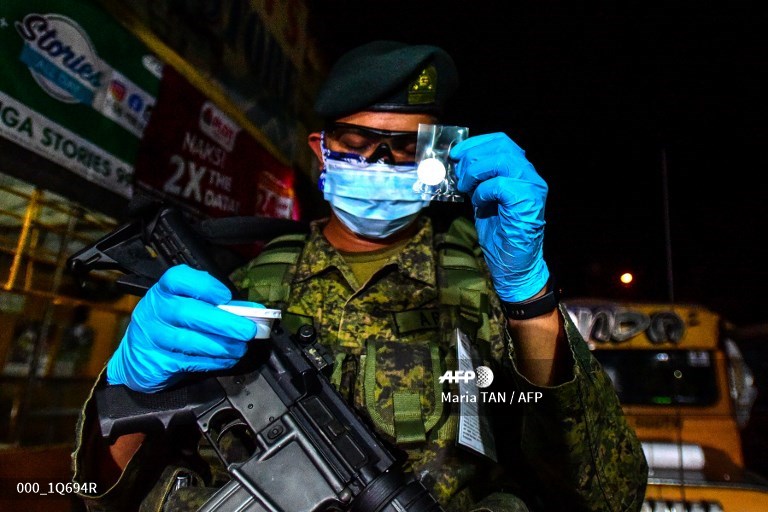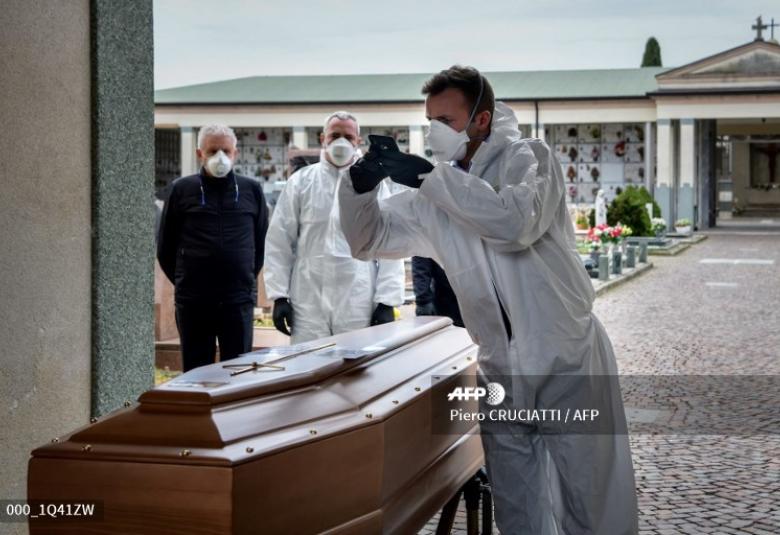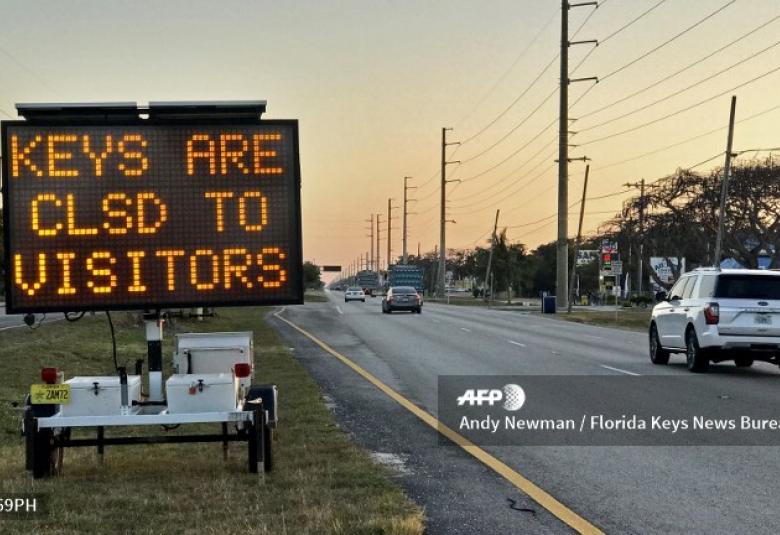26 Mar
Here are the latest developments in the coronavirus crisis:
- World confined -
More than three billion people have been asked to stay at home in almost 70 countries and territories as governments battle the coronavirus pandemic.
They include the world's second most populous country of 1.3 billion people, India, which came under lockdown on Wednesday.
President Vladimir Putin urged Russians to stay home, declared March 28 to April 5 a non-working week and postponed an April 22 vote on constitutional reforms, but did not impose the kind of strong confinement measures taken in other countries.
Saudi Arabia sealed off the capital Riyadh and two of Islam's holiest cities Mecca, and Medina, and extended curfew hours. In Egypt a night-time curfew began for two weeks.
Iran will ban intercity travel by Friday.
The British parliament shut down until April 21.
- China province gets moving again -
After a months-long lockdown, China's Hubei province, home to more than 50 million people, lifted its tough restrictions on movement.
Huge crowds jammed trains and buses as people took their first opportunity to travel for a long time.
Hubei's capital city Wuhan -- the initial epicentre of the outbreak -- will allow residents to leave from April 8.
- 'Whole of humanity' threatened: UN -
The United Nations warned the coronavirus pandemic is threatening the entire human race, as it launched a humanitarian response plan featuring a $2 billion appeal for the world's poorest people.
The International Monetary Fund and World Bank called for governments to put a hold on debt payments from the world's poorest nations.
- More than 20,000 dead -
At least 20,599 deaths have been recorded since the virus first emerged in December, according to an AFP tally compiled at 1900 GMT Wednesday based on official sources.
More than 447,030 declared cases have been registered in 182 countries and territories.
Italy has suffered the most deaths with 7,503, out of 74,386 declared infections. On Wednesday 683 new deaths and 5,210 new cases were announced.
Spain has had 3,434 fatalities from 47,610 cases. Mainland China has had 3,281 deaths out of 81,218 cases.
Next on the list of worst-hit countries is Iran with 2,077 deaths and 27,017 cases, then France with 1,331 and 25,233 cases.
- Massive economic packages -
After days of tough negotiations, the White House and Senate agreed a mammoth $2-trillion stimulus package to help the US economy resist the COVID-19 pandemic.
Germany's parliament voted through a package of measures worth almost 1.1 trillion euros ($1.2 trillion) to shield Europe's largest economy.
- Medical supplies from China -
In Spain, the government announced a 432-million-euro ($467 million) deal to buy medical supplies from Beijing, while France said it would have millions of protective masks flown in from China.
- Virus 'rampaging' through prisons -
UN rights chief Michelle Bachelet urged countries to protect people held in overcrowded prisons and other enclosed facilities by releasing vulnerable detainees, saying COVID "risks rampaging through such institutions".
Sudan and Ethiopia ordered the release of thousands of prisoners.
- No Easter processions -
The Vatican decreed that Easter will be celebrated by Catholics without worshippers gathering and such rituals as processions.
Ukrainian President Volodymyr Zelensky urged church leaders to organise Easter services online.
AFP





